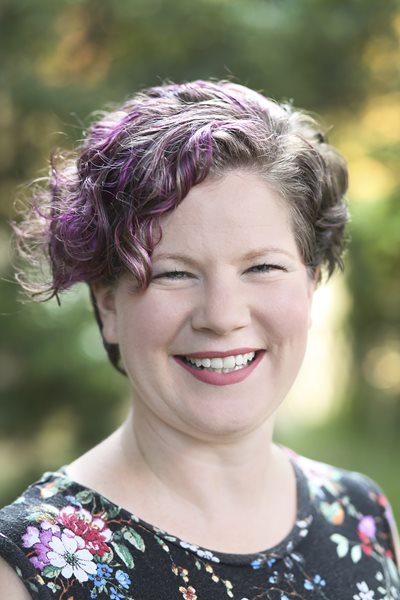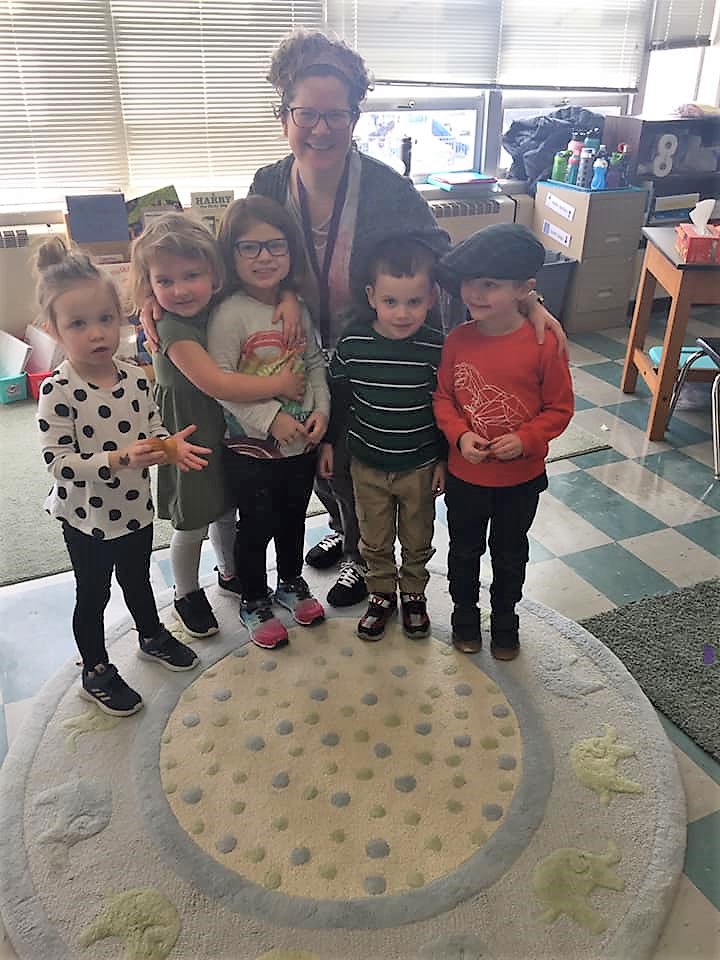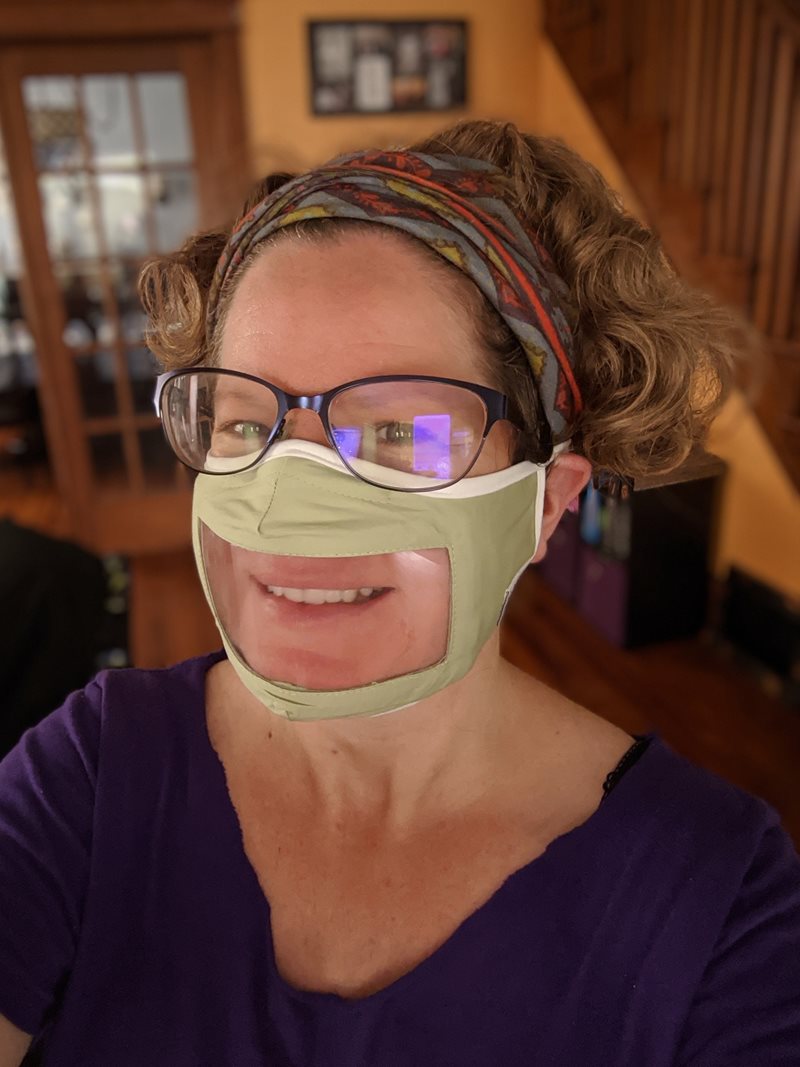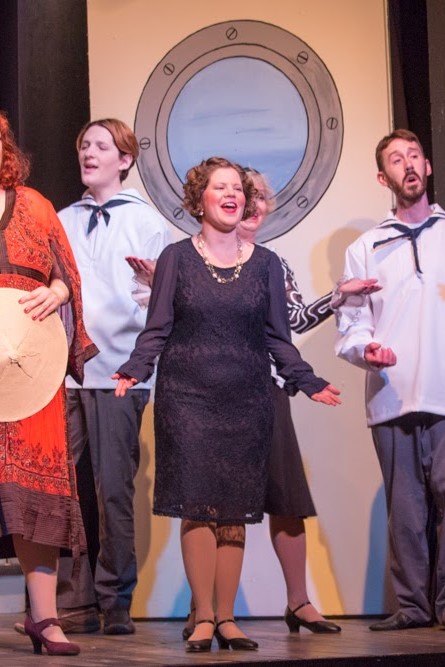Faculty Focus: Kimberly Edmonds
 In her position as a clinical educator who supervises first-year students in their clinical practicum in the University’s Department of Speech-Language Pathology (SLP), Kimberly C. Edmonds, MS, CCC-SLP, believes she’s getting the best of both worlds.
In her position as a clinical educator who supervises first-year students in their clinical practicum in the University’s Department of Speech-Language Pathology (SLP), Kimberly C. Edmonds, MS, CCC-SLP, believes she’s getting the best of both worlds.
First, she gets to work in an academic setting within higher education, something she’s always wanted to do.
“I wanted to get a lot of clinical experience under my belt before I moved to an academic setting,” said Edmonds, who joined Salus in 2018 after nine years of practice. “I get to help mentor and train future speech pathologists. But then I still get to have a lot of interaction with the kids, too.”
Those “kids” she’s referring to make up the second part of her equation: the desire to work in pediatrics. She supervises two preschool practicum programs: an inclusive three-year-olds class at Immaculate Conception Preschool in Jenkintown and a pre-kindergarten enrichment program at a preschool based out of the Reform Congregation Keneseth Israel near the University’s Elkins Park, Pennsylvania campus.
“I went into speech pathology because I wanted to work in pediatrics. With the position I have in the preschools, I’m really in the trenches with the graduate students quite a bit,” said Edmonds, who earned her Bachelor of Science degree in Speech-Language Pathology and Audiology from Indiana University of Pennsylvania and her master’s degree in Communication Disorders from Arizona State University. “And, with my role at Salus, I really didn’t have to give up anything. I really get the best of both worlds.”
 She’s also been at both ends of the virtual teaching spectrum since the start of the pandemic. For the preschool programs, she started conducting Zoom meetings. "It was definitely a challenge and required some adjustment, but actually went a lot better than I anticipated,” she said. “I went into it not anticipating the shutdown would be so long. I was just trying to carry over some of our routine activities from the classroom as best I could."
She’s also been at both ends of the virtual teaching spectrum since the start of the pandemic. For the preschool programs, she started conducting Zoom meetings. "It was definitely a challenge and required some adjustment, but actually went a lot better than I anticipated,” she said. “I went into it not anticipating the shutdown would be so long. I was just trying to carry over some of our routine activities from the classroom as best I could."
The same thing happened with her SLP students at Salus. For the summer session, the Speech-Language Institute — the on-campus clinical facility — converted completely to telehealth.
“I, along with the majority of the clinical educators in our program, did not have experience with telepractice previously, so there was definitely a learning curve,” she said. “When we were getting ready for summer, I was doing continuing education courses online, I was playing around with the platform, and I did practice sessions with my grad students before they met their clients just to try to make everything go as smoothly as possible. So it was definitely a quick turnaround.”
Edmonds said there had been a push for increased telehealth in the field of speech-language pathology even before the pandemic hit. “But this created the impetus to really get that ball rolling,” she said. “I’m also involved with our state association, so I know that we’re definitely trying to use this as an opportunity to promote legislation that would expand telehealth in our profession.”
 She’s also been exploring options for Personal Protective Equipment (PPEs), particularly with masks that have a clear panel that allows the face and mouth to be visible. “I do have one mask that I’ve trialed myself at home and it works OK, but it has a time limit as far as fogging,” she said. She has been experimenting with various de-fogging methods, but only makes about an hour before they are really not functional or comfortable.
She’s also been exploring options for Personal Protective Equipment (PPEs), particularly with masks that have a clear panel that allows the face and mouth to be visible. “I do have one mask that I’ve trialed myself at home and it works OK, but it has a time limit as far as fogging,” she said. She has been experimenting with various de-fogging methods, but only makes about an hour before they are really not functional or comfortable.
“Part of it’s looking at different types of PPEs that will allow that visual for kids to see our faces and our mouths. But then part of what I’m working on is tweaking our routine in a preschool classroom to allow for more social distancing.”
In addition to being a clinical educator, Edmonds is bilingual in Spanish and also guest lectures in some of the academic coursework related to working with interpreters and bilingualism.
When she’s not teaching, music has been a big part of Edmonds’ life. She took piano lessons as a youngster, something she’s again doing now as an adult after taking a break from the piano during undergraduate and graduate school.
 Prior to the pandemic interrupting her non-academic activities, Edmonds sang and played piano with an adult music ensemble through Mosaic Music Lessons in Phoenixville, Pennsylvania. Edmonds, who enjoyed musical theatre in high school, is also involved with Forge Theatre in Phoenixville, along with her husband, Dr. Ryan Edmonds.
Prior to the pandemic interrupting her non-academic activities, Edmonds sang and played piano with an adult music ensemble through Mosaic Music Lessons in Phoenixville, Pennsylvania. Edmonds, who enjoyed musical theatre in high school, is also involved with Forge Theatre in Phoenixville, along with her husband, Dr. Ryan Edmonds.
“Just four years ago I got back into theater and got involved with local community theater,” she said. “And, it’s also something my husband and I do together. Theater is a huge part of our lives.”
She also tries to incorporate some music into her SLP practice, particularly when she’s working with younger children. That also carries over with her Salus students as well. “I try to teach my grad students about the value of music and dramatic plays with young kids and preschoolers, so I incorporate that as part of our program that the Salus students will have to plan out,” she said.